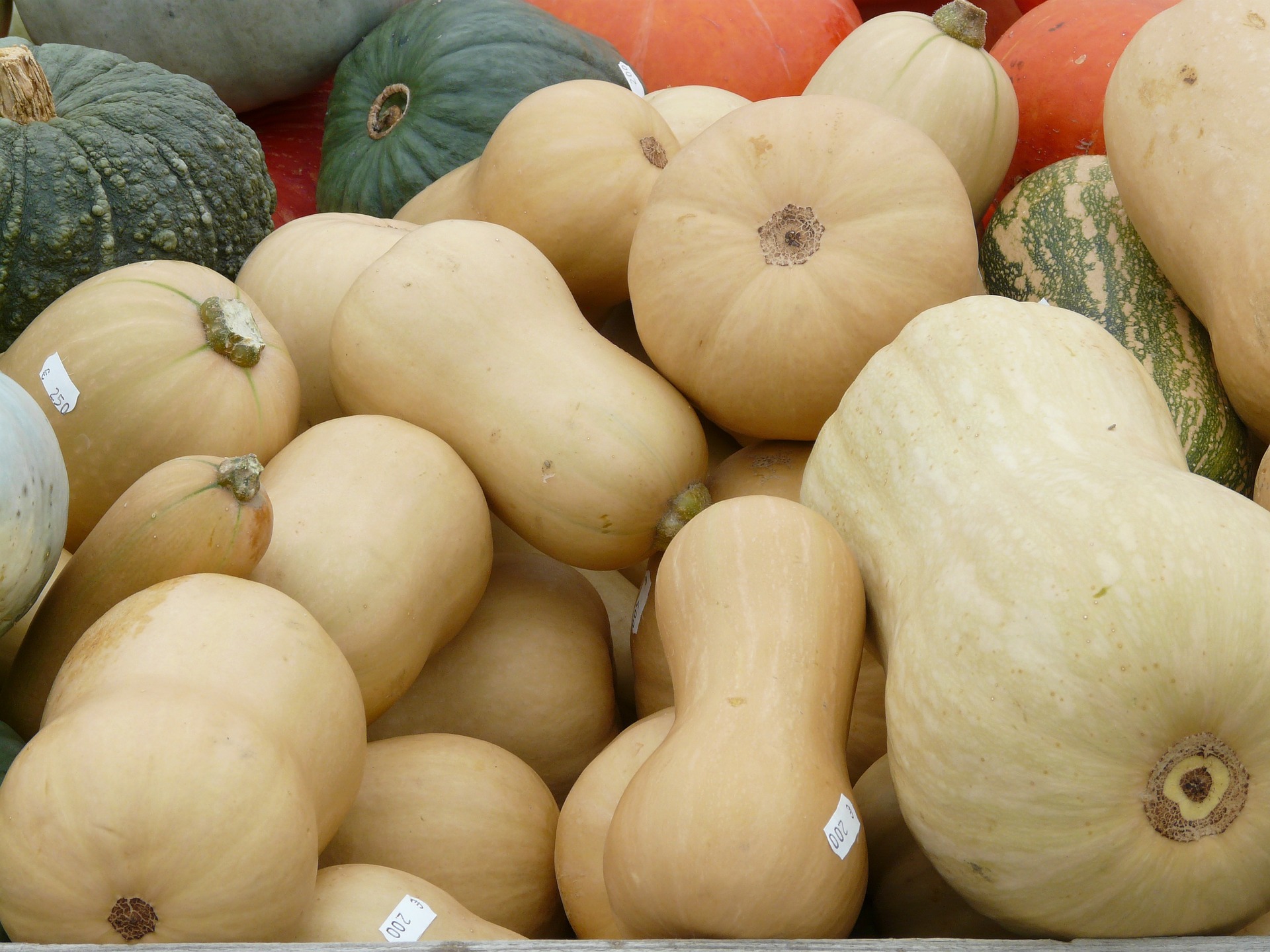They look completely different on the outside, but have a very similar creamy orange flesh inside.
To add confusion, winter squash is often grouped together as one food item, nutritionally and otherwise. And, winter squashes can often be substituted for one another in dishes.
So then, what is the difference between buttercup squash and butternut squash? Let’s find out.
- Buttercup squash: a small, usually dark-green squash that is a variety of Cucurbita maxima, having sweet orange flesh.
- Butternut squash: a yellowish winter squash having sweet, orange-colored flesh; the plant bearing this fruit.
Buttercup squash:
- Has an upside down acorn shape.
- Has a dark green outer skin, with orange flesh.
- Tends to be a bit dry (can be alleviated with steaming or baking).
- Has a flavor that is sweet and nutty.
- Possible substitutions from the Substitutions Bible: butternut squash (more easily peeled), delicata squash (moister), or sweet potato (sweeter, moister).
Butternut squash:
- Has a distinctive bell shape.
- Has a pale beige outer skin, with orange flesh.
- Can grow to be over a foot long.
- Has a flavor that is sweet and nutty.
- Possible substitutions from the Substitutions Bible: buttercup squash (less moist), delicata squash (less fruity flavor), pumpkin (sweeter, moister), or sweet potato (sweeter, moister).
Given the above breakdown, butternut squash would appear to have the edge here. It’s just a little bit sweeter in flavor – it’s more often compared to sweet potatoes and pumpkins than buttercup – and it’s not as dry.
However, there is another reason why butternut squash is more popular than buttercup: it’s easier to prepare. Winter squash in general can be very difficult and tedious to cut open. But, butternut squash is easily cut and peeled.

I love buttercup squash best because it tastes more like my old time favorite – Hubbard squash (which is difficult to find nowadays.